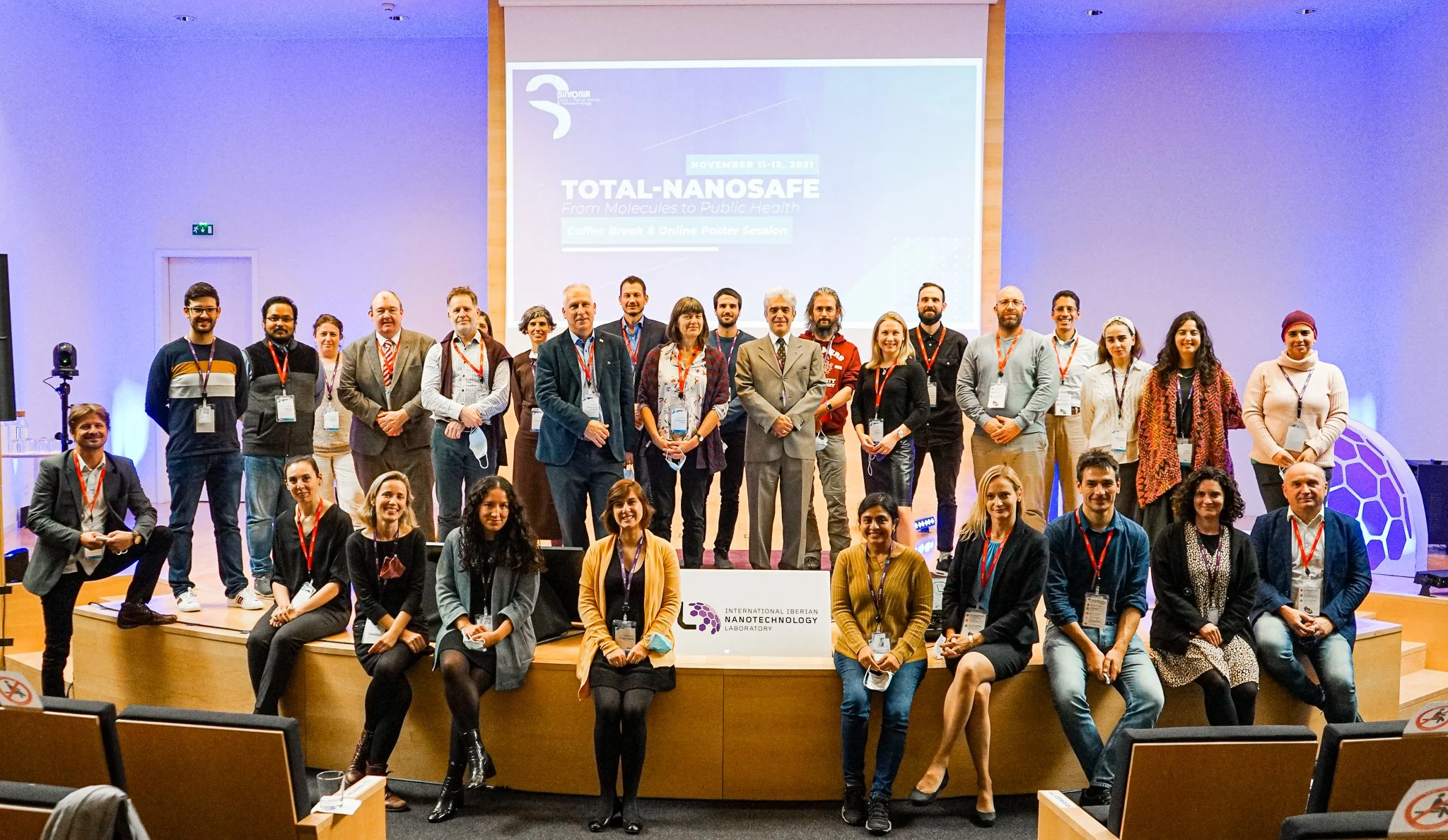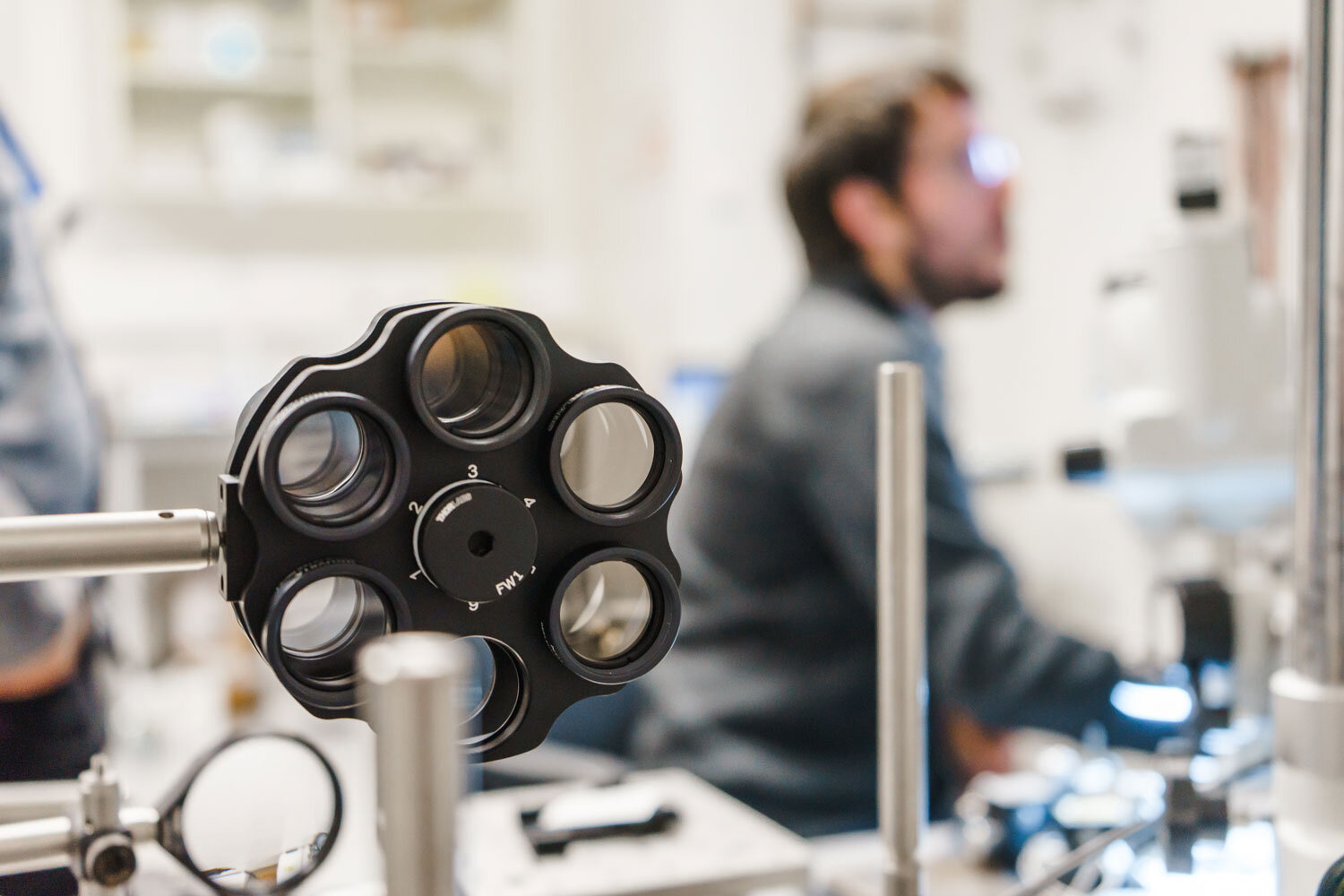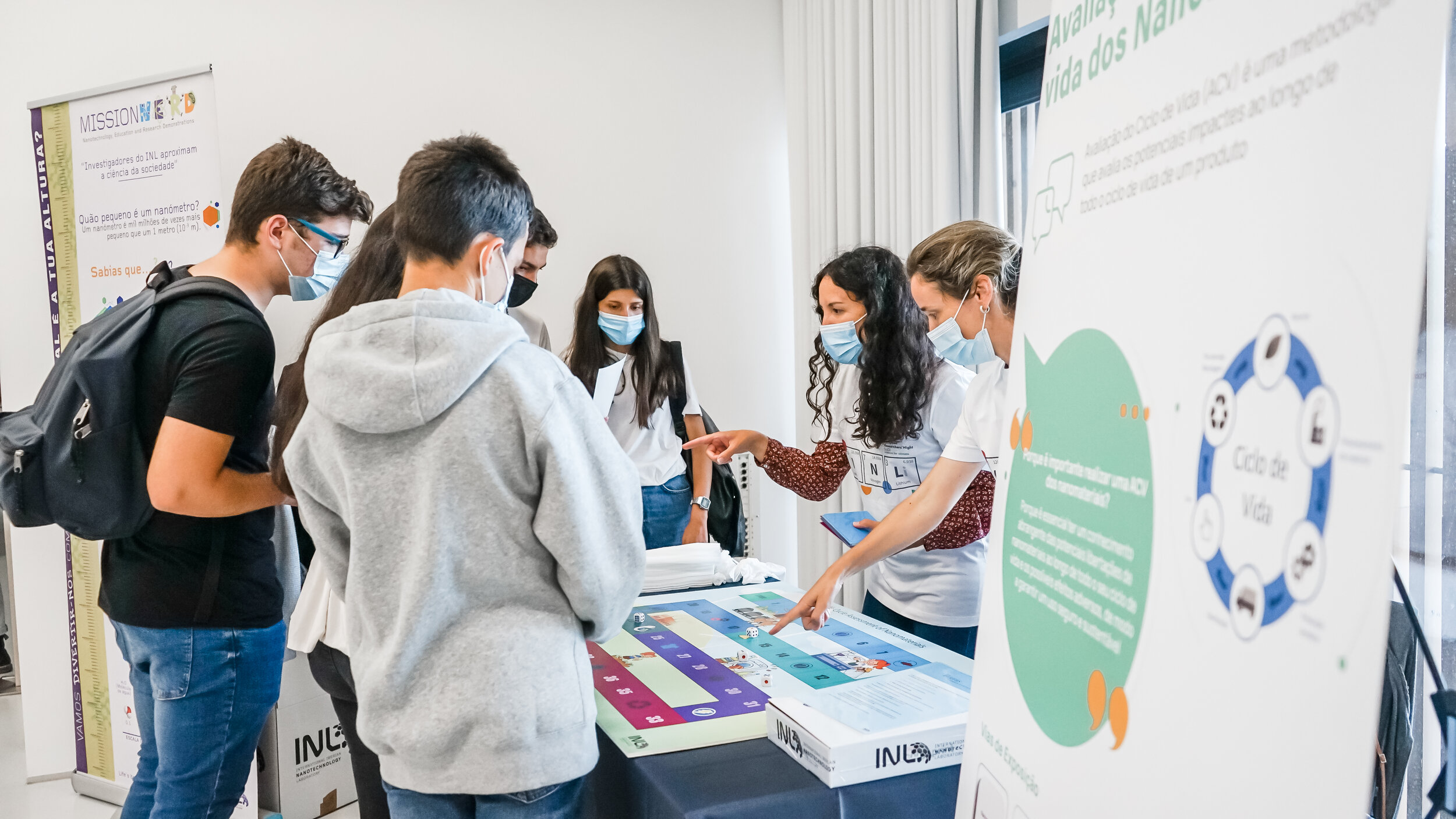EC funding approves a project of INL – FoQaCiA “Foundations of quantum computational advantage”
The EC funding approved a project of INL – FoQaCiA “Foundations of quantum computational advantage” within the Digital Horizon Europe calls: DATA, DIGITAL-EMERGING and HUMAN (HORIZON-CL4-2021-DIGITAL-EMERGING-01-23).
FoQaCiA focuses on expanding the theoretical basis for the design of quantum algorithms. The success of quantum computing critically depends on advances at the most fundamental level. Large-scale investment in quantum implementations will only pay off if they can draw on additional foundational insights and ideas. While several powerful quantum algorithms are known, the basic techniques are few and far between. Largely, it remains to be discovered how to harness the quantum for computation systematically.
Researchers will study four areas of quantum phenomenology:
-
Quantum contextuality, non-classicality, and quantum advantage;
-
The complexity of classical simulation of quantum computation;
-
Arithmetic of quantum circuits;
-
The efficiency of fault-tolerant quantum computation.
These fields are chosen for two reasons. First, their progress is of great importance for the physical realisation and the broad applicability of quantum computation. Regarding (1), one of the most straightforward proofs of quantum contextuality, Mermin’s star, has recently been employed to prove (Bravyi, Gosset, König) that bounded-depth quantum circuits are more powerful than their classical analogues. We seek to expand this result beyond bounded depth. In (2), we study the quantum speedup by shaving off the redundant part – the efficiently classically simulable. In (3), we aim to provide more efficient gate and circuit synthesis techniques, utilising the number-theoretic underpinnings of the problem. Regarding (4), given the celebrated threshold theorem, and the fact that the error threshold is now known to be within reach of the experiment, researchers will tackle the remaining challenge of reducing the cost of fault tolerance.
The second reason for selecting the above work areas is to mine them for foundational quantum mechanical structures and find related quantum algorithmic uses.
The project has 11 partners, 7 in Europe (including Turkey and UK) and 4 in Canada. It was a specific call for collaborative projects between Europe and Canada in quantum computation.
If you want to know more about the project, please contact Ernesto Galvão, Group Leader of Quantum and Linear-Optical Computation, INL.
Participating institutions
-
(Coordinator) International Iberian Nanotechnology Laboratory (INL) Portugal
-
Stockholms Universitet (STU) Sweden
-
Universidad de Sevilla (USE) Spain
-
Universidad de Granada (UGR) Spain
-
Bilkent Universitesi (BKU) Turkey
-
University College London (UCL) United Kingdom
-
Uniwersytet Gda´nski (UGD) Poland
-
University of British Columbia (UBC) Canada
-
Simon Fraser University (SFU) Canada
-
University of Ottawa (UOT) Canada
-
University of Waterloo (UWA) Canada
“Give peace a chance!” message from INL Director-General Lars Montelius
Science has proven to act as a platform for dialogue even in times of war. Science has no borders. Science unites people. We at INL continue to embrace and promote scientific collaboration across the world as a driver for peace. These statements are so clear – and so obvious.
At this moment, our thoughts – all our thoughts – are directed towards those affected by the ongoing war in Ukraine: the people who suffer – whether being still in Ukraine or not – and to their families and friends worldwide. We extend our deepest sympathy and solidarity at this difficult time to those fighting, being injured or losing their lives while we speak.
Our thoughts – all our thoughts – go to our members of staff, students, associates, and friends from Ukraine, Russia, and Belarus. They are the most affected ones. But all of us INLers – united for the cause to contribute to societal development – we are all united – united in condemning the invasion of Ukraine.
Without diminishing the war in Ukraine, we also recognize that the war in Europe has more dimensions and more frontiers. Some being fought by weapons and some being fought by other means, threatening democracy, free rights and equality principles – in short, threatening our ethical values and our concerns for other people. And even in these difficult times, we must remember other large challenges ahead of us. We INLers – and all people on earth – need to work side by side and meet these challenges – united and strong.
We hope for a soon ending of the war in Ukraine, an ending that will allow the Ukrainian people to express their rights to decide by themselves on their future. An ending that does not bring death, injury and destruction to any other people.
Total Nano-Safe Hybrid Conference: strengthening research and innovation potential in nanosafety
Last week, 11-12 of November, INL – International Iberian Nanotechnology Laboratory organized the first ‘Total-Nanosafe’ Hybrid Conference under the scope of the SiNfONiA Project, designed to catalyse and maximise the impact of the ERA Chair on the scientific and research excellence of INL.
During two full days, we’ve brought together experts in different fields related to the use of nanomaterials, nanotechnology and how these are related to different aspects of safety, regarding health and the environment. What came across strongly during these two intense days of presentations and discussions is the will to boost RTD activities in the nanosafety arena and strengthen its research and innovation potential. It was highlighted that bringing to market technology that is safe and trusted by the end-users and consumers is a fundamental necessity and the foundation for all current and future deployment and acceptance of nanotechnology.
We’ve reached 130 registered attendees – 90+ attendees online and 30+ attendees on-site, 16+ hours of discussions, 3 keynotes, 18 speakers, but it was not only a question of numbers that made the conference so successful: it was the general enthusiasm that was constantly present during the 2 days as well as the level of engagement of all speakers and participants showed.
Optical Materials Express feature issue, with the participation of INL Research Team
Bruno Romeira, Staff Researcher at the Ultrafast Bio- and Nanophotonics group and coordinator of the H2020-FET-OPEN project “ChipAI” was invited as Guest Editor of a special issue related to Photonic Neuromorphic Computing in a prestigious journal from the OPTICA (formerly OSA) – “Emerging Optical Materials, Devices and Systems for Photonic Neuromorphic Computing”.
In his own words, “I am very pleased of being part of the guest editorial team of OPTICA (formerly OSA), jointly with researchers across the world, in the recent field of neuromorphic photonics. I strongly encourage authors to submit their most recent achievements in this feature issue covering advances on light-enabled machine learning and artificial intelligence systems”.
This feature issue will highlight recent advances in the field of neuromorphic photonics for light-enabled machine learning and AI systems. This includes advanced neuromorphic photonic devices for artificial optical neurons, synaptic devices, photonic memories, etc., built from key-enabling optical components such as lasers, LEDs, photodetectors, micro-resonators, modulators, and plasmonic elements. Emerging neuromorphic photonic architectures will also be highlighted including photonic (spiking/convolutional/feed-forward/recurrent) neural networks, integrated photonic-electronic neuromorphic processing systems, and photonic tensor-core systems, amongst others.
Topics to be covered include but are not limited to:
-
Material platforms for photonic neuromorphic computing and/or synapses including but not limited to silicon photonics, phase-change materials, high-speed switchable electro-optic materials, plasmonic systems, 2D layered materials, active emitter and photodetector materials etc.
-
Photonic devices and architectures for non-volatile memories, in-memory computing, spiking-neuron systems, machine learning, etc.
-
All-optical implementations of neural networks based on e.g. fiber optical and/or integrated photonic systems, frequency combs, excitable lasers, cryogenic systems, Mach-Zender-interferometer platforms, etc.
-
Intelligent algorithms for nanophotonics and optical system designs
-
Free space optics and optoelectronics for machine learning
-
Photonic reservoir computing
-
Optical Ising machines
All papers need to present original, previously unpublished work and will be subject to the normal criteria and peer-review process of the Journal. The standard OMEx publication charges will apply to all published articles.
Manuscripts must be prepared according to the usual guidelines for submission to Optical Materials Express and must be submitted online through Prism’s manuscript submission system. When submitting, authors should specify that the manuscript is for the “Emerging Optical Materials, Devices and Systems for Photonic Neuromorphic Computing” feature issue (choose from the drop-down menu).
Feature Issue Guest Editors
Antonio Hurtado, University of Strathclyde, United Kingdom (Lead Editor)
Bruno Romeira, INL – International Iberian Nanotechnology Laboratory, Portugal
Bhavin Shastri, Queen’s University, Canada
Zengguang Cheng,Fudan University, China
Sonia Buckley, NIST, USA
Submissions open: 1 November 2021 | Close: 1 December 2021
INL takes new technologies to the European Researchers’ Night 2021
Last Friday, September 24, marked the return of the European Researchers’ Night — the annual celebration of innovative research taking place simultaneously in more than 30 countries and 300 cities throughout Europe.
The diverse programme included ‘live from the lab’ videos about food, water and energy, workshops about light and energy. We’ve also learned about the physics at the microscale, played a game that explained life cycle assessment of nanomaterials, we’ve shown about the importance of energy efficiency and how it can help the environment and our economy, knew a bit more about microstructures & coatings biofoulings, watched an incredible dance act by Arte Total and so many more experiments and experiences.
These were just a few of the possible applications that International Iberian Nanotechnology Laboratory (INL), and ECUM – University of Minho many other partners introduced to more than 1150 visitors 2021 European Researchers’ Night, at Altice Fórum Braga.
The audience defied all researchers with relevant questions and expressed genuine wonder as they saw “magic” happening before their eyes.
This year, ‘Science for Climate’ was the motto that framed an event committed to raising awareness about the role of science in achieving the goals of the European Green Deal. It aims to identify major societal concerns about climate change, understand how to achieve sustainable growth, and explore the present and future solutions to tackle these challenges.
Next Page » « Previous Page -->Last Friday, September 24, marked the return of the European Researchers’ Night — the annual celebration of innovative research taking place simultaneously in more than 30 countries and 300 cities throughout Europe.
The diverse programme included ‘live from the lab’ videos about food, water and energy, workshops about light and energy. We’ve also learned about the physics at the microscale, played a game that explained life cycle assessment of nanomaterials, we’ve shown about the importance of energy efficiency and how it can help the environment and our economy, knew a bit more about microstructures & coatings biofoulings, watched an incredible dance act by Arte Total and so many more experiments and experiences.
These were just a few of the possible applications that International Iberian Nanotechnology Laboratory (INL), and ECUM – University of Minho many other partners introduced to more than 1150 visitors 2021 European Researchers’ Night, at Altice Fórum Braga.
The audience defied all researchers with relevant questions and expressed genuine wonder as they saw “magic” happening before their eyes.
This year, ‘Science for Climate’ was the motto that framed an event committed to raising awareness about the role of science in achieving the goals of the European Green Deal. It aims to identify major societal concerns about climate change, understand how to achieve sustainable growth, and explore the present and future solutions to tackle these challenges.





